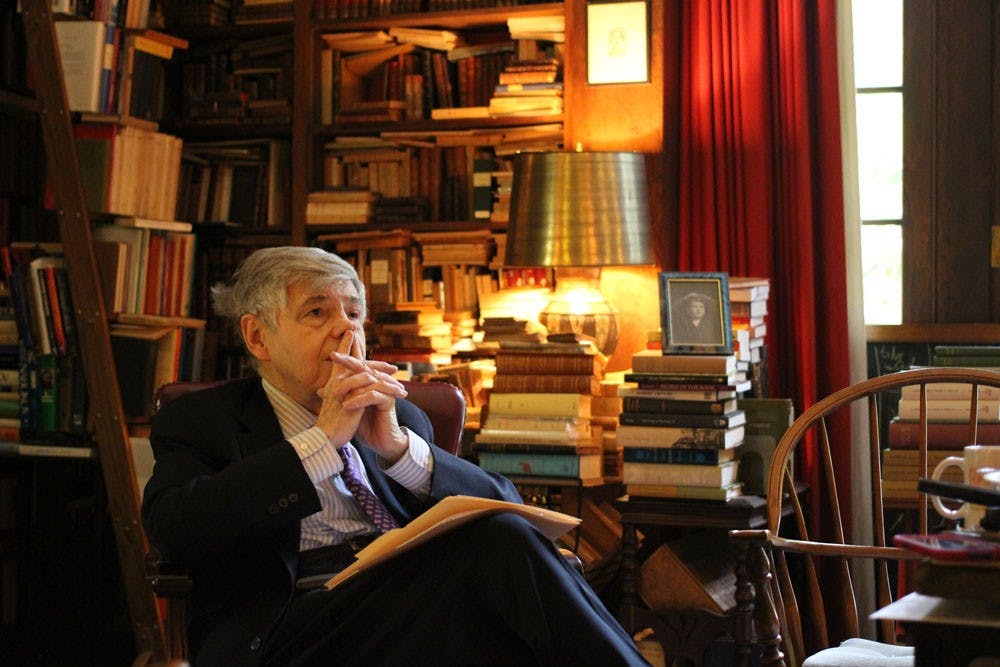The Humanities Center (HC) was founded in 1966 under the guidance of Milton S. Eisenhower, then president of the University. Eisenhower’s goal was to promote the study of the humanities at Hopkins, which had been undermined by a significant shift in the University’s academic focus toward the study of the sciences.
The HC emerged from a group of faculty and staff from different departments at Hopkins, which had begun to organize meetings and seminars to explore how their diverse academic fields intersected.
To inaugurate its founding in 1966, the Center held a symposium titled, “The Languages of Criticism and the Sciences of Man: The Structural Controversy” which brought prominent European thinkers to the Homewood Campus. Significantly, it was the first time that structuralist thought was treated cross-disciplinarily.
Jacques Derrida and René Girard were two prominent French thinkers who attended. At the symposium, Derrida first presented his groundbreaking critique of structuralism, creating an entirely new perspective on how philosophy, literature and language relate and affect each other.
This symposium garnered international attention and was covered in publications such as Time and the French newspaper Le Monde.
Professor Stuart Leslie of the History of Science and Technology Department, who is currently writing a book on the University, argues that the symposium was a critical juncture in Hopkins history.
“I don’t think there’s been any comparable event like [the Symposium] probably since Lord Kelvin did his physics lectures at Hopkins at the old campus in the 1880s,” Leslie said. “[The Symposium] put Hopkins at the center, not just academically but in general intellectual conversation.”
The Symposium attracted new faculty to Hopkins in the years following. Leslie noted that the academic focus of the Center shifted with these new faculty, reflecting the adaptability and interdisciplinary nature of the HC.
“The Humanities Center always took the direction of its most prominent faculty members. In the early years it was certainly comparative literature and critical theory. When Professor [Emeritus of the Humanities Michael] Freed came, it moved a little more to history of art,” Leslie said. “It has really from the beginning, right up until now, been kind of a meeting ground for theorists both for Europe and North America. It has kind of been a beachhead for European theory.”

Co-founder of the HC, Professor of Humanities Richard Macksey, described that the HC was a place where scholars could pursue a wide range of studies, like film and media studies or Africana studies, which were unconventional at the time.
“Over the years, the Center has served to start projects that probably couldn’t have — or wouldn’t have — been supported by any given department,” Macksey said. “We had a number of cases of people who started programs elsewhere because they were able to try them out here.”
Reflecting on the legacy of the Center, Leslie said that the department’s history supporting the other humanities departments cements its critical place at the University.
“I would say that it is still one of the best things Hopkins ever did. It ranks up there with the all time signature moments in Hopkins history,” Leslie said. “Its legacy is measured best through what it did for other departments by putting them on the map.”





